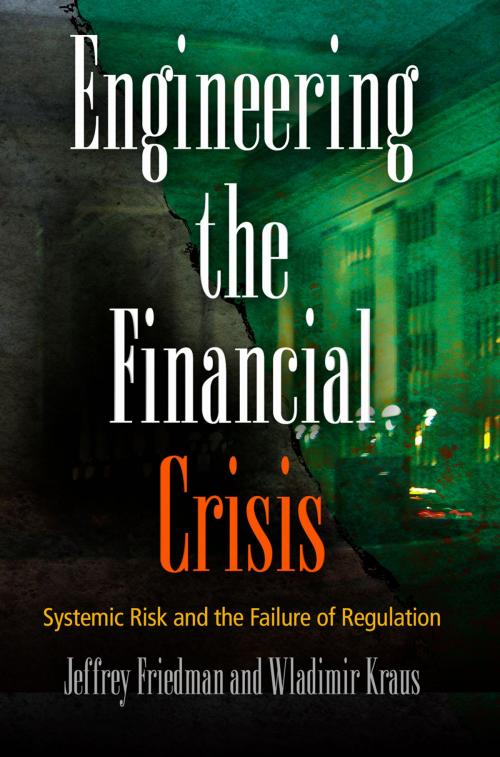Engineering the Financial Crisis
Systemic Risk and the Failure of Regulation
Nonfiction, Reference & Language, Law, Business, Business & Finance, Business Reference, Government & Business| Author: | Jeffrey Friedman, Wladimir Kraus | ISBN: | 9780812205077 |
| Publisher: | University of Pennsylvania Press, Inc. | Publication: | September 1, 2011 |
| Imprint: | University of Pennsylvania Press | Language: | English |
| Author: | Jeffrey Friedman, Wladimir Kraus |
| ISBN: | 9780812205077 |
| Publisher: | University of Pennsylvania Press, Inc. |
| Publication: | September 1, 2011 |
| Imprint: | University of Pennsylvania Press |
| Language: | English |
The financial crisis has been blamed on reckless bankers, irrational exuberance, government support of mortgages for the poor, financial deregulation, and expansionary monetary policy. Specialists in banking, however, tell a story with less emotional resonance but a better correspondence to the evidence: the crisis was sparked by the international regulatory accords on bank capital levels, the Basel Accords.
In one of the first studies critically to examine the Basel Accords, Engineering the Financial Crisis reveals the crucial role that bank capital requirements and other government regulations played in the recent financial crisis. Jeffrey Friedman and Wladimir Kraus argue that by encouraging banks to invest in highly rated mortgage-backed bonds, the Basel Accords created an overconcentration of risk in the banking industry. In addition, accounting regulations required banks to reduce lending if the temporary market value of these bonds declined, as they did in 2007 and 2008 during the panic over subprime mortgage defaults.
The book begins by assessing leading theories about the crisis—deregulation, bank compensation practices, excessive leverage, "too big to fail," and Fannie Mae and Freddie Mac—and, through careful evidentiary scrutiny, debunks much of the conventional wisdom about what went wrong. It then discusses the Basel Accords and how they contributed to systemic risk. Finally, it presents an analysis of social-science expertise and the fallibility of economists and regulators. Engagingly written, theoretically inventive, yet empirically grounded, Engineering the Financial Crisis is a timely examination of the unintended—and sometimes disastrous—effects of regulation on complex economies.
The financial crisis has been blamed on reckless bankers, irrational exuberance, government support of mortgages for the poor, financial deregulation, and expansionary monetary policy. Specialists in banking, however, tell a story with less emotional resonance but a better correspondence to the evidence: the crisis was sparked by the international regulatory accords on bank capital levels, the Basel Accords.
In one of the first studies critically to examine the Basel Accords, Engineering the Financial Crisis reveals the crucial role that bank capital requirements and other government regulations played in the recent financial crisis. Jeffrey Friedman and Wladimir Kraus argue that by encouraging banks to invest in highly rated mortgage-backed bonds, the Basel Accords created an overconcentration of risk in the banking industry. In addition, accounting regulations required banks to reduce lending if the temporary market value of these bonds declined, as they did in 2007 and 2008 during the panic over subprime mortgage defaults.
The book begins by assessing leading theories about the crisis—deregulation, bank compensation practices, excessive leverage, "too big to fail," and Fannie Mae and Freddie Mac—and, through careful evidentiary scrutiny, debunks much of the conventional wisdom about what went wrong. It then discusses the Basel Accords and how they contributed to systemic risk. Finally, it presents an analysis of social-science expertise and the fallibility of economists and regulators. Engagingly written, theoretically inventive, yet empirically grounded, Engineering the Financial Crisis is a timely examination of the unintended—and sometimes disastrous—effects of regulation on complex economies.















